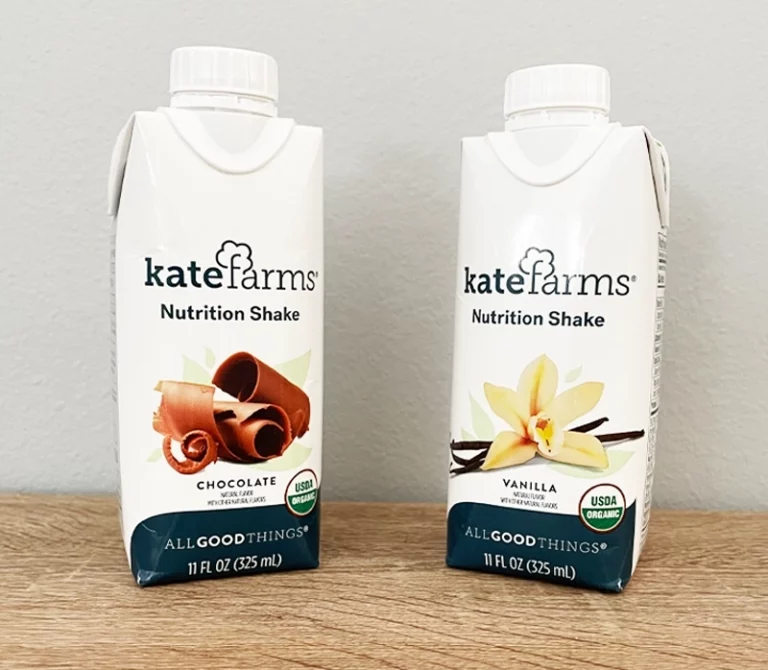How to Gain Weight for Skinny People: 9 Tips
Gaining weight can be beneficial for many people.
However, whether you’re new to weightlifting, trying to build muscle, or have experienced unexpected weight loss, you may struggle to gain weight.
If this is you, here are 9 things you should start doing right now to gain clean and quality weight.

1. Eat in a calorie surplus
To gain weight, you must consistently eat more calories than your body needs (calorie surplus).
Therefore, it helps to know the number of calories you need to maintain weight so that you can eat in a calorie surplus.
The number of calories you need to maintain your weight — known as your maintenance calories — depends largely on your total daily expenditure (TDEE).
There are three components of TDEE (1):
- Resting energy expenditure (REE): The number of calories your body burns at rest. REE is the largest component of TDEE, comprising 60-70%.
- Thermal effect of food (TEF): The number of calories your body uses to digest and absorb food. Protein requires the most energy followed by carbohydrates and then fats.
- Activity energy expenditure (AEF): This is comprised of the energy you burn during exercise as well as non-exercise activities like painting the house or mowing the lawn.
Factors such as age, gender, body fat mass, and muscle mass, among other factors, influence your TDEE and therefore your maintenance calories.
You can use an online calculator like this one to estimate your maintenance calories.
Once you know your maintenance calories, consume 300–500 calories more each day to gain weight.
For example, if your maintenance calories are 2,000, you should consume 2,300 to 2,500 calories daily.
Track what your calories are each day so that you know you’re reaching your calorie target for weight gain.
You can use apps or keep a journal to track.
2. Portion out your meals
A common thing I see with those struggling to gain weight is that they just eyeball and guess the portion of something they eat.
This leaves a lot of deviation in their total daily calorie intake.
By portioning out what you eat, you are allowing for more accuracy in knowing exactly how much you are eating. You can use digital scales, measuring cups, or your hand.
Your palm is roughly three ounces of meat, the size of your fist is close to one cup, and your thumb is roughly one ounce.
3. Consume nutrient-dense foods
While it may be common to think that you can eat whatever you want to gain weight, it may not be the best practice.
This is because eating whatever you want may not provide you with the necessary calories or nutrients to gain weight.
For example, let’s say you grab a candy bar and sandwich from the convenience store. These items may be high in calories but they may also be low in protein.
Gaining weight is largely about calories but you must also make sure you’re getting enough nutrients too.
Therefore, focus on nutrient-dense foods like lean meats, fruits, vegetables, legumes, and whole grains.
4. Consume enough protein
Protein is helpful for building and maintaining muscle mass.
Most individuals in the United States consume enough protein to meet their protein needs. But those needs change when you’re exercising and trying to gain weight.
The recommended daily allowance (RDA) for protein is 0.36 grams per pound (0.8 grams per kilogram) of body weight.
For example, a 150-pound (68-kg) person would need to consume at least 54 grams of protein daily.
But, when it comes to gaining weight and building muscle, research suggests that a higher intake of protein in the range of 0.63 to 0.90 grams per pound (1.4 to 2.0 grams per kilogram) is more beneficial (2).
This recommendation equates to 95 to 135 grams of protein per day for a 150-pound (68-kg) person.
Good sources of protein include meats, fish, poultry, and dairy.
Quinoa, soy products, chia seeds, beans, and peas are good plant-based sources of protein.
5. Train hard
Ask yourself, are you training hard enough to gain weight and build muscle?
Pushing yourself in the gym to progressively build strength and muscle is key.
Perform 1–3 sets at 70–85% of your one-rep max for each exercise that targets a major muscle group, including the arms, chest, shoulders, back, core, and legs (3).
Your one rep max is the maximum amount of weight you can lift for a given exercise.
However, you don’t necessarily need to test your one-rep max for an exercise.
You can perform as many repetitions as you can for a certain weight and then enter that weight and the number of repetitions into this calculator to determine the number of repetitions you should be doing to stay within 70–85% of your one-rep max for a given weight.
For example, if you can bench 95 pounds (43.2 kilograms) for 10 reps, you should bench around 90 pounds (41 kilograms) for 12 reps to about 110 pounds (50 kilograms) for 6 reps.
A less advanced option is to perform 3–4 sets of 8–12 repetitions for a given exercise, with the last two reps being the most difficult to complete.
Make sure to rest between your sets to allow enough recovery time.
Try to avoid scrolling through your phone and instead focus on breathing and taking sips of water. This will enhance your focus and allow you to put more effort into your sets.
6. Don’t overtrain
Many individuals gauge the effectiveness of their workouts based on how sore they are the following day.
However, muscle soreness is not an indicator of muscle growth or strength.
You can train to failure on some sets but you should leave 2–4 reps in the tank for each set that you do.
This may sound counterintuitive, but going to failure on each set is a recipe for overtraining and burnout.
7. Focus on sleep
Have you ever tried to work out on four to five hours of sleep? It probably wasn’t the best workout.
Now, what about seven to eight hours of sleep? You probably felt stronger and more energetic.
This is because poor sleep is associated with disruptions in hormones and blood sugar that make it more difficult to build muscle.
Your body’s stores of glucose — which help fuel your workouts — have also been shown to decrease in people who get less sleep.
If you are unsure why you’re not making the gains you’d expect, examine the quality of your sleep and the amount you’re getting each night.
You might be able to grind off a few hours of sleep every once and a while, but you’re not giving yourself the best opportunity to have good workouts or experience quality gains.
Aim to get 7-9 hours of sleep each night.
8. Drink enough water
Water plays an important role in human metabolism. It can help with the digestion and absorption of nutrients from food.
Consuming enough water also keeps you hydrated, which is especially important during intense workouts and to prevent the consequences of dehydration.
Thus, it’s key that you consume adequate amounts of water to build muscle and gain weight.
The amount of water you need varies, but a good rule of thumb is 1 milliliter per calorie you consume.
So, if you eat 3,000 calories, aim to drink at least 3,000 milliliters (3 liters) or 12 cups of water per day.
Water is best for staying hydrated, you also get water from foods like fruits, vegetables, and meats.
Milk, juice, protein shakes, coffee, and other fluid beverages can also count towards your fluid goals.
The caffeine from coffee, energy drinks, tea, and other beverages can be dehydrating, but only when consumed in excess quantities (4).
9. Enjoy the process
While it can be frustrating for those who are wanting to gain weight and build muscle, don’t forget to enjoy the process.
Celebrate the small victories. Maybe you got stronger on a certain exercise compared to the previous week. That is a win.
Maybe the scale only went up 0.2 pounds (0.09 kilograms). That is a win.
At the end of the day, trying to build muscle and gain weight takes time. Have fun on the journey and smile when a small victory happens.
The bottom line
Gaining weight — while easy for some — can be difficult for others.
Eating in a calorie surplus, portioning out your food, and consuming nutrient-dense and protein-rich foods are helpful strategies for gaining weight.
Training — but not too hard — focusing on sleep, and drinking enough water are also strategies to gain weight.
Finally, don’t forget to celebrate the small victories — some progress is better than no progress.







